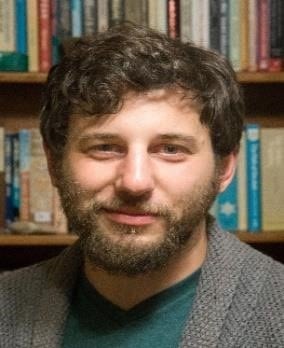 This week: a message from Director of Israel Engagement Eli Cohn-Postell.
This week: a message from Director of Israel Engagement Eli Cohn-Postell.
A few years ago, I heard an address John Fish delivered to the Boston Chamber of Commerce on the radio. You may remember Mr. Fish as the chairperson of the Boston 2024 Olympic bid. While I was always skeptical of the project, I have to admit that evening he almost had me convinced. He did not talk much about 2024 in his speech. Instead, he asked the audience to envision Boston in the decades to come. He prompted the Chamber to consider what they wanted the city to look like in 2030, 2040, and 2050, and he asked how hosting the Olympics would aid in bringing about that vision.
I was reminded of that talk this week, when I was doing my own visioning with the Israel Policy Forum as a member of the inaugural IPF Atid Charles Bronfman Conveners Summit. Over four days, I joined a group of 24 other young leaders committed to advancing the two-state solution to the Israeli Palestinian conflict. Our schedule was packed, as we heard from Jewish professional and lay leaders, policy experts, thought leaders, and current and former diplomats. Naturally, our meetings got me thinking about the peace process and its role in our hopes for Israel’s future.
Of our myriad speakers, only one is currently optimistic about the prospects for peace and reconciliation between Israelis and Palestinians. For most experts, the idea of peace is out there, but it exists on quite a long timeline. Nonetheless, we at JCRC persist in our pursuit of Israeli-Palestinian peace and the two-state solution. Along with Israel Policy Forum and many others, we know that the two-state solution is the only way to fulfill the Zionist mission of establishing and maintaining a secure, Jewish, and democratic state of Israel.
Much of our communal energy is focused on the two-state solution, and rightfully so. Israel has been in a state of conflict with its neighbors since its creation more than 70 years ago. Yet we don’t typically think as much about what happens after peace is achieved. Perhaps this is because an agreement seems so unrealistic in the current moment. I think this attitude does a disservice to global Jewry and how we conceive of our future. We are locked into tired ways of thinking that reinforce the status quo instead of helping us make real progress. Perhaps we would be better served by a new worldview, one that sees the two-state solution not as the top of the mountain but as an important landmark along the way to an even higher peak.
We can use John Fish’s model to imagine what Israel might look like in 2030, 2040, and 2050. We have political dreams: Israel engaged in diplomacy with its neighbors in the region; economic dreams: Israel with an economy that continues to flourish and lead in fields such as hi-tech; social dreams: an integrated Israel with citizens from different backgrounds living together in harmony.
We know that Israel’s security is paramount to achieving these dreams, and that for Israel to be secure, peace with the Palestinians is a necessary step. For regional integration—political, economic, and social—Israelis and their neighbors must be relieved of the burden of conflict. We also know that, given the political impasse, one of our best strategies to preserve the possibility of a two-state solution is to invest in Israeli and Palestinian peacebuilding efforts. If in 2030 we want to see Israelis and Palestinians living under better circumstances, then it is incumbent on us to invest in peacebuilding organizations today. You can start with the 16 outstanding groups we are currently featuring on our Boston Partners for Peace platform.
The prospect of peace seems like a distant hope right now, which makes the realization of these aspirations seem even farther away. And yet the Zionist movement has never had small dreams, and the progress Israel has made in its first 70 years should encourage us to believe that great things are possible. The important thing is to focus on where we want to go, to know with certainty that the two-state solution is a step on the way, and to continue to do everything in our power to make our vision a reality.


